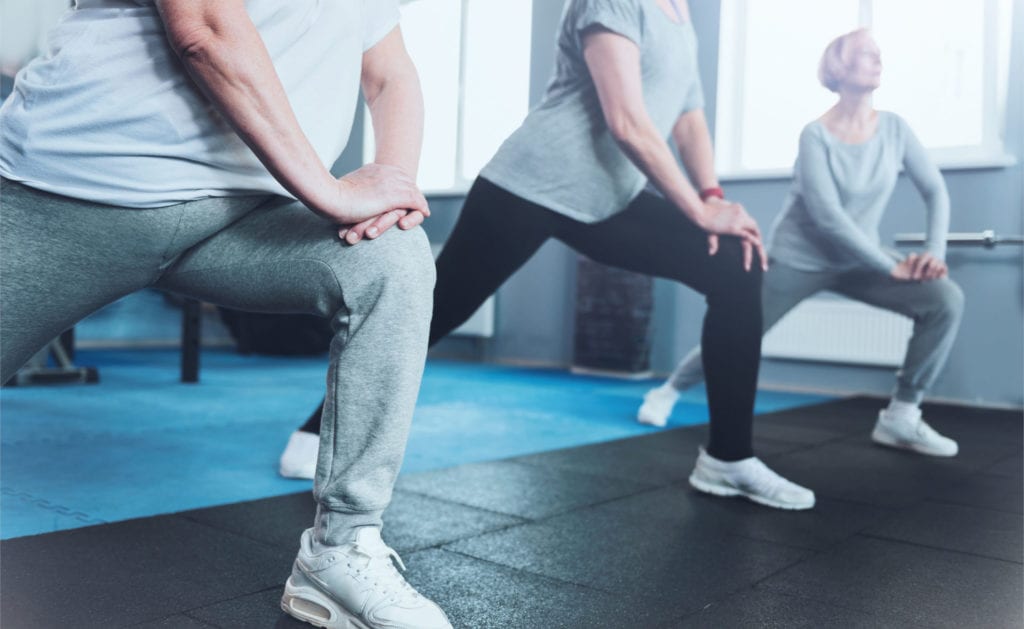With each passing year, your body requires more support and new routines to limit those normal aches and pains of aging. As bone and muscle start to lose their strength, your flexibility and overall joint health are quickly impacted. Without any additional effort, you may find yourself stuck with a limited range of motion and unable to perform daily tasks as you once did.
Joint health begins early, but there are still opportunities to improve your health as a senior. Let’s go over some tips to improve your joint care!
Make a lifestyle change for joint care
The most simple of our suggestions for joint pain relief, these lifestyle changes can help improve your flexibility:
- Watch your weight. Those who are overweight or underweight may be putting additional stress on their joints without even realizing. If you are underweight, your muscles may have a hard time supporting your body, making your joints unstable and unable to support you. Alternatively, being overweight can put a large amount of stress on your body too. Each pound on your body puts an additional 4 pounds of pressure on your joints, so keep this in mind when you step on the scale.
- Get more physical activity. When we have joint pain, it’s natural to want to avoid physical activity. However, you may be putting yourself at risk by limiting your exercise. Physical activity can reduce pain, strengthen muscles and help you to maintain a healthy weight. Later, we’ll go over some tips to exercise safely.
- Listen to your body. If you feel like you need to stretch, do it! Likewise, don’t ever force your body to finish a stretch if you feel like you can’t do it. You know your body better than anyone else, and you know when you’ve taken an exercise too far. Don’t over exert yourself ever!
Get some exercise
Exercise is a vital component to prevent joint pain, so try out these tips:
- Warm up. Never start working out without warming up first. Perform a few simple stretches before getting into more intense workouts. This allows your muscles time to limber up and helps prevent any accidental injuries.
- Strengthen your muscles. Your muscles actually play a huge role in joint care. Since your muscles support your joints, having more muscle tone means you will have improved flexibility. You might try using small hand weights for your arms or leg raises to improve your leg muscles.
- Increase your range of motion. Limited flexibility makes it difficult for you to move your arms and legs, which can put you at risk of falling. Each day that you exercise, work on reaching a little bit further than you did last time. If you need help, seek the assistance of a physical therapist to help you stretch safely.
Check your diet
Curious how your diet can help protect your joints? Check out this advice:
- Get calcium. Calcium is good for keeping your bones healthy, which in turn impacts your joint health. Do your best to drink milk and eat greens like kale and broccoli to make sure you’re getting enough calcium for your age and gender. If you have issues getting enough calcium, try taking a supplement.
- Stay hydrated. Your body is mostly composed of water, and staying hydrated is key to staying healthy. Keep water with you at all times so you are adequately hydrated, and choose foods that have lots of water like berries and melons. Plus, when exercising, it will help you avoid becoming overheated.
- Get Vitamin D. Vitamin D assists with the absorption of calcium, helping you get the most out of your vitamins. We know that Vitamin D comes from the sun, but it’s likely that you are not getting enough during the dark and rainy months. Like calcium, you may choose to take a supplement to ensure you are getting enough of this vitamin.
Do you want to find an assisted living facility that can support you while you improve your health?
Contact Culpepper Place of Olive Branch. We look forward to making your golden years as happy and as comfortable as possible.






